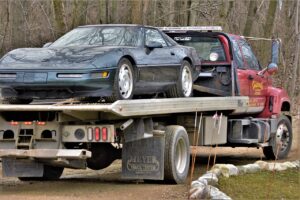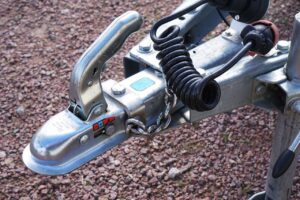Choosing the right trailer wiring harness for off-road use is crucial for ensuring reliability, durability, and safety in challenging conditions. Off-road environments present unique challenges, including rough terrain, water crossings, and exposure to the elements. This blog post will guide you through the key factors to consider when selecting a trailer wiring harness for off-road use.
Durability and Quality Materials
Key Considerations:
- Heavy-Duty Construction: Opt for wiring harnesses specifically designed for off-road use, with robust construction to withstand harsh conditions.
- Quality Materials: Choose harnesses made from high-quality materials such as tinned copper for wires and durable, weather-resistant insulation like cross-linked polyethylene (XLPE).
Why It Matters: Off-road conditions can be punishing on electrical systems. High-quality materials and construction ensure that the wiring harness can endure rough terrain, vibrations, and exposure to water, mud, and dust.
Waterproof and Sealed Connectors
Key Considerations:
- Waterproof Connectors: Ensure the wiring harness features waterproof connectors to protect against water ingress during river crossings and heavy rain.
- Sealed Connections: Look for harnesses with sealed connections and use dielectric grease to further protect against moisture and corrosion.
Why It Matters: Waterproof and sealed connectors prevent electrical shorts and corrosion, which are common issues in wet and muddy off-road environments.
Proper Gauge Wiring
Key Considerations:
- Appropriate Wire Gauge: Select a wiring harness with a wire gauge suitable for the electrical load of your trailer. Heavier gauge wires (lower gauge numbers) are better for handling higher loads and providing reliable performance.
- Load Capacity: Ensure the wiring harness can support all the electrical components on your trailer, including lights, brakes, and auxiliary systems.
Why It Matters: Using the correct wire gauge prevents overheating and voltage drops, ensuring that all electrical components function correctly under load.
Compatibility with Off-Road Lighting and Accessories
Key Considerations:
- LED Lighting: Choose a wiring harness compatible with LED lights, which are more durable and energy-efficient than traditional incandescent bulbs.
- Auxiliary Power: Ensure the harness can support additional off-road accessories such as winches, auxiliary lights, and power inverters.
Why It Matters: Off-road trailers often require additional lighting and accessories for safety and convenience. A compatible wiring harness ensures these components operate reliably.
Easy Installation and Maintenance
Key Considerations:
- Plug-and-Play Design: Look for wiring harnesses with plug-and-play connectors that simplify installation and reduce the risk of wiring errors.
- Ease of Access: Choose a design that allows easy access for maintenance and repairs, ensuring you can quickly address any issues that arise.
Why It Matters: Simplifying installation and maintenance reduces downtime and ensures that you can keep your trailer’s electrical system in top condition, even in remote locations.
Protective Coverings and Insulation
Key Considerations:
- Protective Looms: Use split loom tubing or conduit to protect wiring from physical damage caused by rocks, debris, and rough terrain.
- Heat and UV Resistance: Ensure the insulation material is resistant to heat and UV rays to prevent degradation over time.
Why It Matters: Protective coverings and high-quality insulation extend the lifespan of the wiring harness by shielding it from environmental damage and physical wear.
Reliable Grounding
Key Considerations:
- Secure Ground Connections: Ensure the wiring harness includes secure and robust ground connections to prevent electrical issues.
- Corrosion-Resistant Materials: Use corrosion-resistant materials for ground connections to maintain reliable performance in harsh conditions.
Why It Matters: Reliable grounding is essential for the proper operation of the trailer’s electrical system, especially in off-road environments where vibrations and exposure to elements can affect connections.
Conclusion
Choosing the best trailer wiring harness for off-road use involves considering factors such as durability, waterproofing, appropriate wire gauge, compatibility with off-road accessories, ease of installation, protective coverings, and reliable grounding. By selecting a high-quality wiring harness that meets these criteria, you can ensure safe, reliable, and efficient operation of your trailer’s electrical system in challenging off-road conditions. For a wide range of robust and reliable wiring harnesses designed for off-road use, visit WiringLabs and explore our products tailored to meet your needs.




